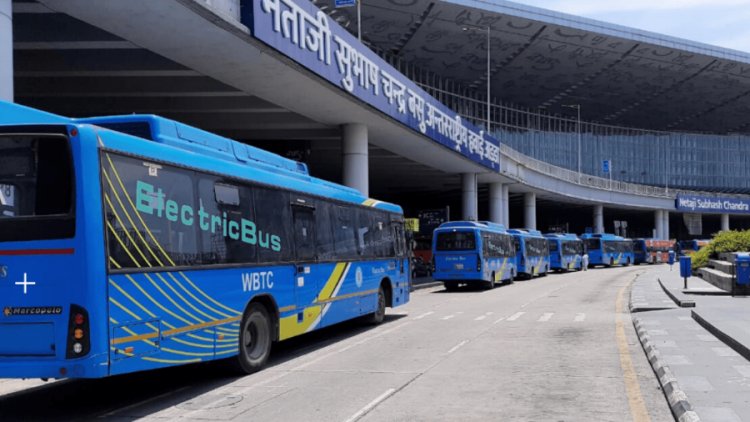West Bengal - The West Bengal government has decided to switch to "lease model" for procuring new electric buses to overcome high initial capital expenditure. Currently West Bengal Transport corporation has owned 80 electric buses and further purchase would be under the lease model in which comes under FAME scheme3.
Under leasing/OPEX1 model the bus would be operated by the state Transport department and ticketing responsibility will stay with them and would pay the rental based on per kilometre basis through a competitive tendering basis.
The holder of concession will be required to incur the necessary capital expenditure (CAPEX) for the procurement of electric buses, and operation and maintenance infrastructure and the authority will incur operational expenditure on per kilometre basis.
Mr. N S Nigam, Transport Secretary, West Bengal Government said "We will now procure 50 new electric buses on dry lease. This is an OPEX model compared to previous acquisitions on a CAPEX2 model,"
1OPEX model where the government invite the private operator to invest as per their specifications based on each cluster which has the different requirements. Operator gets paid on monthly basis based on the service.
2CAPEX model is the buses been procured and operated by the state government authorities.
3FAME India Scheme – The FAME India Scheme is an abbreviation for the Faster Adoption and Manufacturing of Hybrid & Electric Vehicles in India. This is an Indian government programme first introduced on April 1, 2015, to encourage manufacturers, component suppliers and other stake holders to invest in the manufacture, sale and support of hybrid and electric vehicles. Phase I of the original scheme ran for a period of two years i.e. April 1, 2015 to March 31, 2017, and then extended to March 2019. Under the FAME I scheme, USD123m was allotted out of the amount of USD2.15bn set aside for this development. And phase II scheme with a fund allocation of USD 1.54bn over the period of three years, effect from 1st April 2019.



